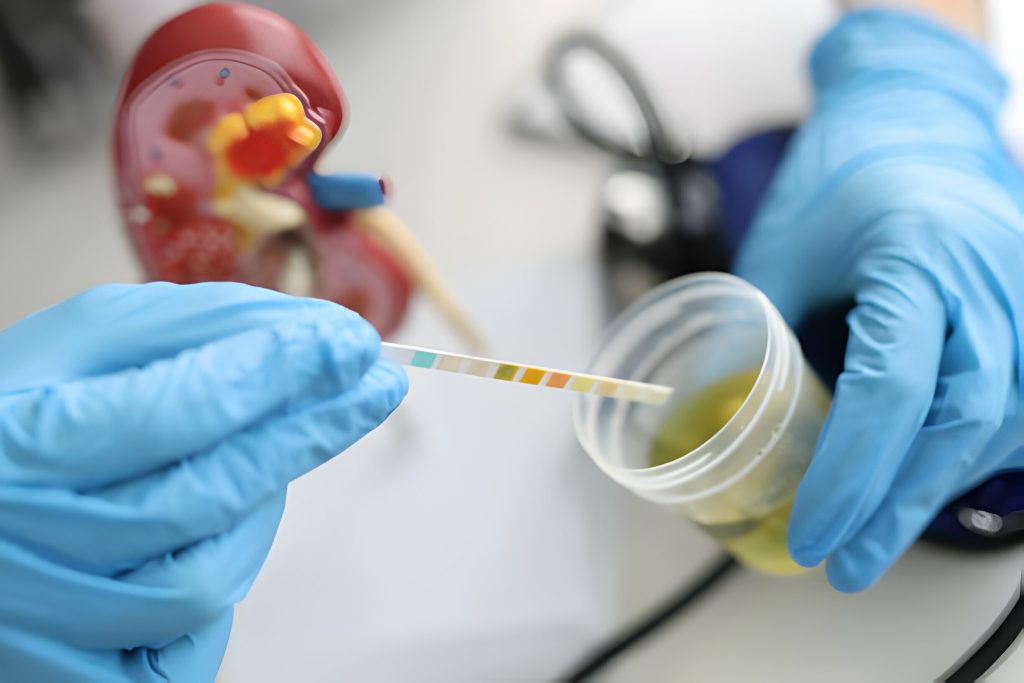In urine drug screen test, many wonder if urine tests can detect alcohol. This guide will explore urine drug screens. It will shed light on their ability to find alcohol in the body.
Understanding Urine Drug Screens
Urine drug screens are common. They detect a range of substances, including illegal drugs and prescriptions. Doctors, employers, and sports officials use these tests. They are quick, easy, and cheap.
Purposes and Uses of Urine Drug Screen Test
- Doctors: Doctors may request urine drug screens. They use them to see if a person is using prescribed medications correctly.
- Rehabilitation Programs: Rehabilitation programs assess patients. They also follow up with patients in drug and alcohol rehab. This often involves urine drug screens.
- Sporting Events: Sporting events use urine tests. The tests check for drugs that boost performance to ensure fair competition.
- Employers: Some workplaces have high safety standards. They may require urine drug tests for new and existing staff. Employers at these workplaces may demand them.
Which Substances Can Urine Tests Detect?
Urine drug screens have the capability to detect various substances, including alcohol. Apart from alcohol, the tests can identify drugs. These drugs include amphetamines, opioids, cocaine, cannabis, and more.
The Procedure and Types of Urine Tests
When it comes to detecting alcohol in the body, several types of urine tests can be employed. The tests are crucial in many settings. They range from legal proceedings to rehab programs. They ensure that people follow sobriety rules. Let’s explore the different types of urine tests used to detect alcohol consumption.
1. Ethanol Urine Test:
The ethanol urine test is made to detect alcohol or its byproducts in urine. It is a targeted test. It is used in situations where alcohol use needs close monitoring. This includes probation programs and substance abuse treatment facilities. This test provides direct evidence of recent alcohol intake.
2. Ethyl Glucuronide (EtG) Test:
The EtG test is a urine test. It detects ethyl glucuronide, a form of ethanol, in urine. Ethyl glucuronide stays in the body for a long time. This makes the test good at spotting alcohol for several days after drinking. It is often used in alcohol monitoring programs and workplace testing.
3. Phosphatidylethanol (PEth) Test:
The PEth test measures PEth in urine. PEth is a marker of alcohol consumption. PEth is a direct metabolite of ethanol and is formed in the body after alcohol consumption. This test offers a longer detection window than traditional alcohol tests. It is useful for assessing chronic or heavy drinking.
4. 5-Hydroxyindoleacetic Acid (5-HIAA) Test:
The 5-Hydroxyindoleacetic Acid (5-HIAA) Test is primarily used to detect serotonin levels. But, it can also indirectly indicate alcohol use. Alcohol affects serotonin metabolism, leading to changes in 5-HIAA levels in urine. The test is less specific than others. But high 5-HIAA levels may prompt more investigation into alcohol use.
5. Liver Function Tests:
Liver function tests can show if the liver is damaged. They include tests for liver enzymes. These include gamma-glutamyl transferase (GGT) and alanine aminotransferase (ALT). These tests can indirectly show alcohol consumption. Drinking too much alcohol can damage the liver. This damage causes high enzyme levels in urine. The tests are not alcohol-specific. But if they show problems, they may suggest alcohol misuse.
Reliability of Urine Drug Tests
Urine tests can find some substances well. But it’s important to note their limits. False-positive results can occur due to legal substances like certain cough syrups. The tests have cut-off levels to reduce the risk of false positives and negatives. These tests are reliable. But body mass, hydration, and time since drug use affect them.
Detection Times for Alcohol
One of the key questions is how long urine tests can detect alcohol. Unlike some drugs, alcohol has a relatively short detection window in urine. Typically, alcohol can be detected for approximately 7-12 hours after consumption. Consider factors like body mass, hydration, and when alcohol is consumed.
How to Prepare for a Urine Drug Screen Test
Preparation for a urine test is straightforward. The individual needs to provide a urine sample to the technician or doctor. Certain drugs and supplements can affect test results. So, tell the test provider about any prescriptions or over-the-counter drugs.
Interpreting the Results
Urine drug screen results usually come back within a few days. If the result is positive, a second, more accurate test may be required, such as the GC-MS test. The results will be explained by the person conducting the test or a medical review officer.
Conclusion: The Role of Urine Drug Screens in Alcohol Testing
Urine drug screens can detect alcohol. But the detection window is short compared to some other substances. These tests are used for many purposes. They are crucial. They ensure compliance with medical treatments, workplace safety, and fairness in sports. Understanding their reliability and limits is key. This is true for people taking these tests and those giving them.
Frequently Asked Questions (FAQs)
What factors influence urine drug screen results?
Many factors affect detection. They include body mass, hydration, urine acidity, and recent drug use.
How long can urine drug screens detect alcohol?
Detection times vary. They can range from hours to days. This depends on factors like how often and how much alcohol a person consumes.
Are urine drug screens reliable?
The tests are generally reliable. But they can have false-positive and false-negative results. This can happen due to factors like cut-off levels and diluted urine.
How to prepare for a urine drug screen test?
You need little preparation. Just tell the test provider about any medications or supplements you take.
What substances can a urine drug screen test detect?
Urine drug screens can detect many substances. These include alcohol, amphetamines, opioids, cannabinoids, and more.
How are urine drug screen test results interpreted?
Results usually come back in a few days. If they are positive, a second test may be needed to confirm.
Who typically requests urine drug screens?
Doctors, employers, and sports officials often request urine drug screens. They do so for various purposes.
For more information, click here.

